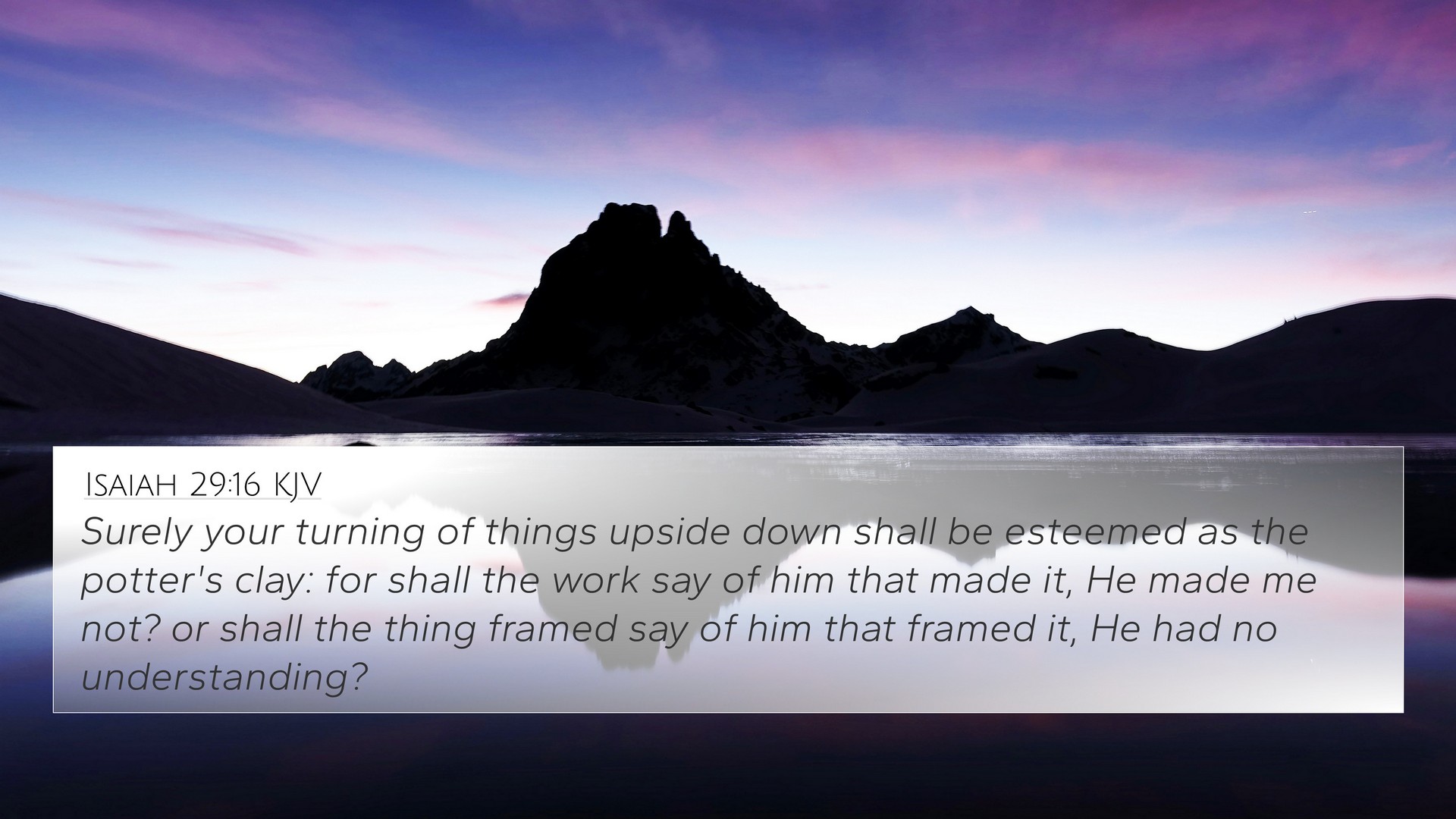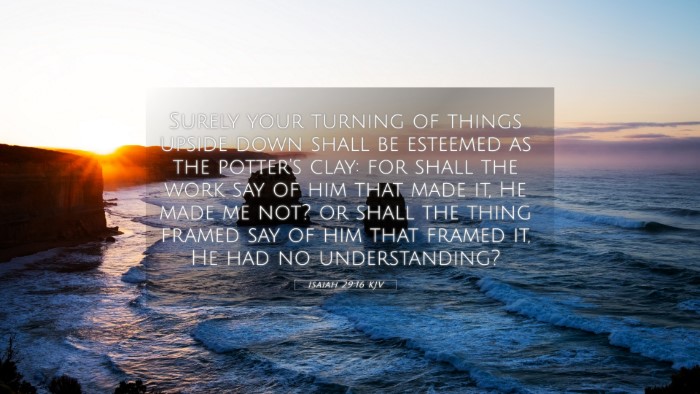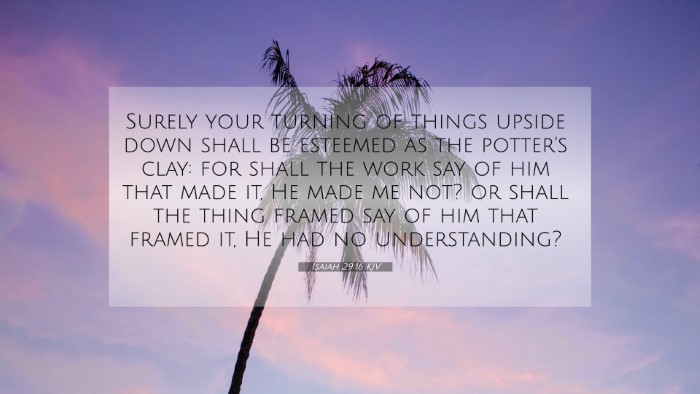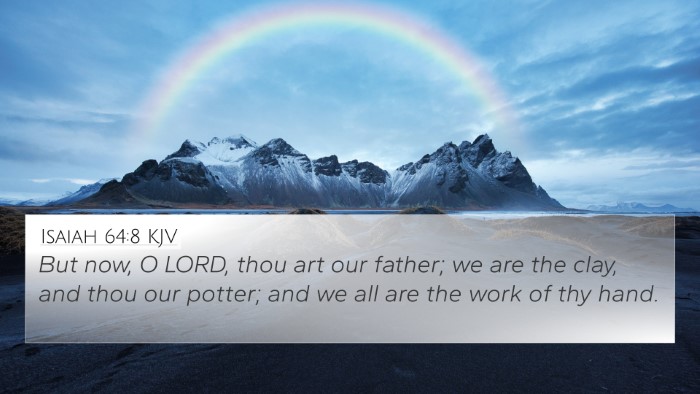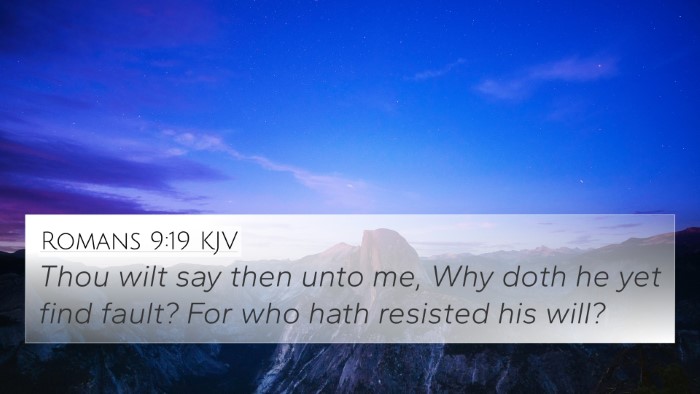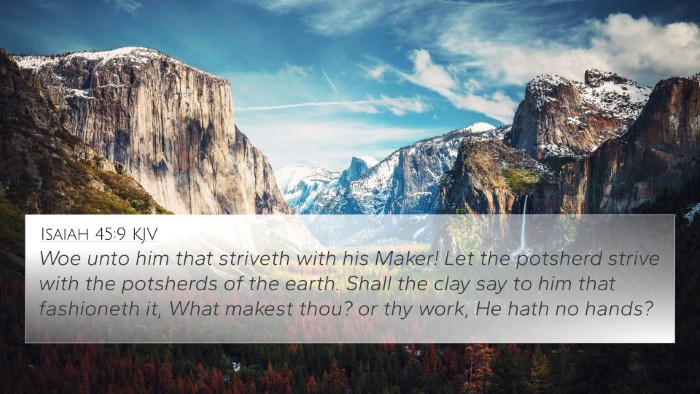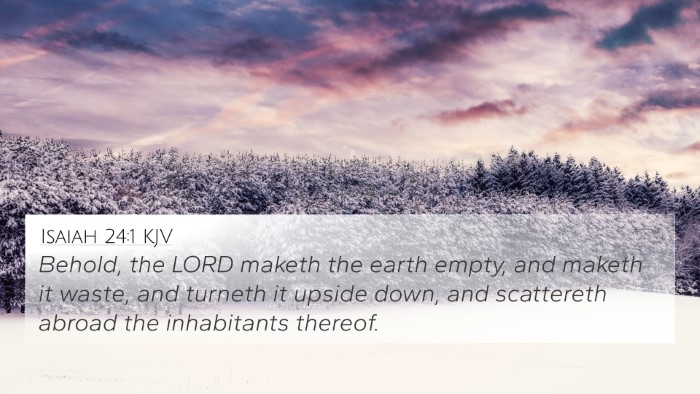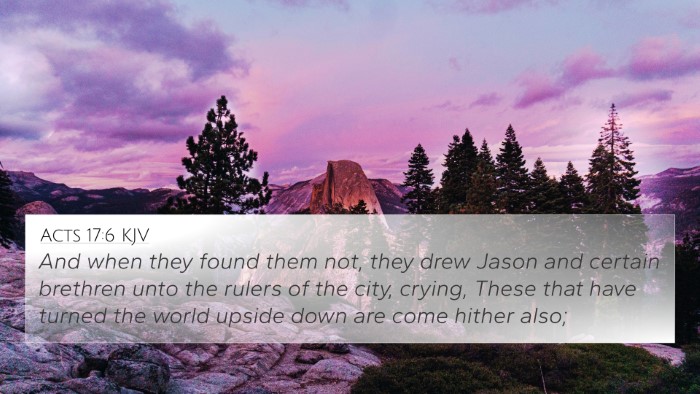Understanding Isaiah 29:16
Isaiah 29:16 says, "Surely your turning of things upside down shall be esteemed as the potter’s clay: for shall the work say of him that made it, He made me not? or shall the thing framed say of him that framed it, He had no understanding?" This verse encapsulates a profound theological principle about God's sovereignty and human folly.
Summary of Interpretations
In this verse, Isaiah addresses the perversion of justice and the distortion of God's creation by the people of Israel. The metaphor of clay and the potter suggests that humans often misunderstand their relationship with God. To further illustrate the depth of this verse, several prominent biblical commentators provide invaluable insights:
- Matthew Henry: Henry emphasizes that human beings have a tendency to attribute their failures and misfortunes to God, acting as if they have independent authority over their existence. He notes that the clay cannot tell the potter what to do, highlighting the absurdity of such behavior.
- Albert Barnes: Barnes focuses on the theme of reversal, noting that God's creation is perfect, and it is humanity that distorts His designs. He cites the need for humility before the Creator, acknowledging that questioning God's wisdom is a reflection of ignorance.
- Adam Clarke: Clarke expands on the idea of spiritual blindness and the misconception about divine understanding. He points out that the questioning attitude towards God, as if the created can understand better than the Creator, reveals a lack of insight into the nature of divine wisdom.
Key Themes in Isaiah 29:16
This verse presents essential themes relevant to both the old and new covenant, connecting various scriptures throughout the Bible. These themes include:
- The Sovereignty of God: The significant truth that God is the ultimate creator and authority over all creation, emphasized in passages such as Romans 9:20-21.
- Human Understanding vs. Divine Understanding: The contrast between human wisdom and God's transcendent knowledge can be explored in Job 38:2-4.
- Accountability to the Creator: The essence that the creation should not question the creator is evident in Psalm 139:14.
Cross-References for Isaiah 29:16
Several Bible verses can be cross-referenced to enhance the understanding of Isaiah 29:16:
- Jeremiah 18:6: "O house of Israel, cannot I do with you as this potter? saith the Lord. Behold, as the clay is in the potter's hand, so are ye in mine hand, O house of Israel."
- Romans 9:20: "Nay but, O man, who art thou that repliest against God? Shall the thing formed say to him that formed it, Why hast thou made me thus?"
- Isaiah 45:9: "Woe unto him that striveth with his Maker! Let the potsherd strive with the potsherds of the earth."
- Proverbs 21:2: "Every way of a man is right in his own eyes: but the Lord pondereth the hearts."
- 1 Corinthians 1:25: "Because the foolishness of God is wiser than men; and the weakness of God is stronger than men."
- Ecclesiastes 7:13: "Consider the work of God: for who can make that straight, which he hath made crooked?"
- Isaiah 10:15: "Shall the ax boast itself against him that heweth therewith?"
The Importance of Cross-Referencing
Utilizing tools for Bible cross-referencing is essential for deeper theological study. By examining the connections between Bible verses, one can uncover rich layers of meaning. For example:
- Learning how to find cross-references in the Bible can enhance personal study and sermon preparation.
- Tools like a Bible concordance or Bible cross-reference guide provide structured pathways to explore interconnected scriptures.
- Resources on Bible chain references can help navigate through complex themes encountered in Biblical texts.
Conclusion
Isaiah 29:16 serves as a profound reminder of the relationship between Creator and creation. Through the insights provided by respected biblical commentators and the use of effective cross-referencing, one can gain a clearer understanding of God's sovereignty and the folly of human reasoning. This foundational text connects with numerous other passages, illustrating the cohesive narrative of scripture, affirming that God remains sovereign over all creation irrespective of humanity's flawed perspective. By studying these connections, believers are equipped to explore further the depth and richness of God's Word.
